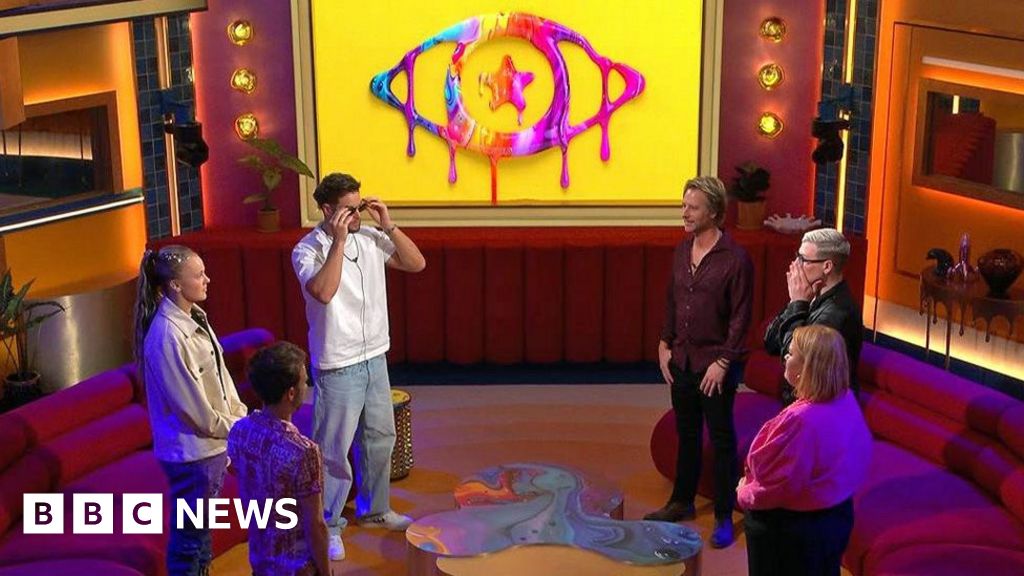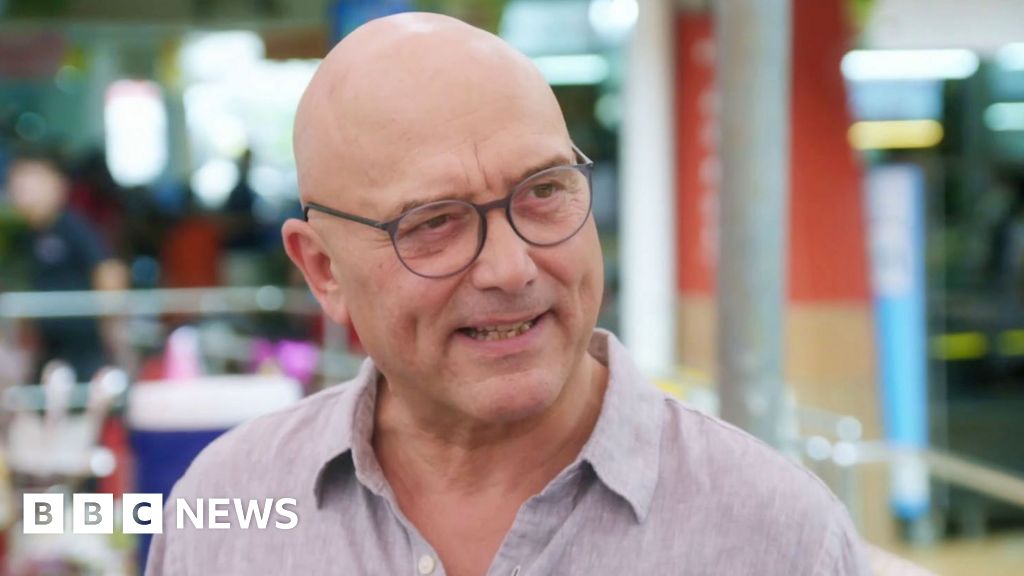ARTICLE AD BOX
By Ian Youngs
Entertainment & arts reporter
Image source, Audrey Albert
Image caption,Women over 50 will draw up a manifesto about the issues they face as part of the Uncertain Futures exhibition
Some of society's pressing problems - like divisions in race, class, age and gender - have not yet been fixed by politicians. Can artists do a better job?
A major new art exhibition in Manchester bills itself as "a manual for social change".
Its title - What Kind of City? - invites visitors to imagine what future they want, and how art might help make it a reality.
It may be ambitious, but this isn't the kind of art that just looks good on a gallery wall. The exhibition is by veteran US art activist Suzanne Lacy, who has spent 50 years staging events that combine community-building with performance art.
"There is a difference between being a political activist and being an artist," she says at Manchester's Whitworth gallery. "I think being an artist gives you a certain amount of pleasure.
"Over time as an activist, it can get really hard because the issues I deal with are quite depressing."
Image source, Brittney Valdez
When Lacy started out in the early 1970s, she brought attention to sexual violence by enlisting women to sit in bathtubs filled with eggs, blood and clay while recordings of others giving explicit details of their rapes played.
She later posted locations of rapes daily on a map in a Los Angeles shopping mall, and brought together 60 women to dress in elaborate robes to march on City Hall to "fight back" against a serial killer dubbed the Hillside Strangler.
The Manchester exhibition shows footage, photos and posters from three later projects, when her work shifted to unite groups of people to make their voices heard and improve relations.
In the 1990s, she set up discussions and a basketball game between young people and the police in Oakland, California, and staged a rooftop event for the disenfranchised and often-vilified teenagers to tell their stories to the authorities and media.
Image source, Kelli Yon
Image caption,Lacy brought young people and the police together in Oakland in the 1990s
In 2017, she took over a disused Lancashire mill for a performance that combined traditional English shape note singing and Sufi chanting.
The following year, she joined up communities from both sides of the Irish border for a series of events "drawing and erasing" the border line, and to compile a manifesto setting out the locals' feelings about it. Lacy later handed it to MPs in Westminster.
However, she is reluctant to say how much difference projects like these have actually made to the communities she has worked with.
"The thing about achievement of concrete goals through art is, I think, a fraught question," she says. "One thing I rarely trust is an artist's opinion of that."
But she adds: "You make the difference through your relationships, I think... The relationships give me so much pleasure.
"It's my friendship network, so that's a sign of success. That the work operates as an artwork is a sign of success. In terms of social cohesion, you don't expect an immediate outcome."
Tendayi Madzunzu (left) and Atiha Chaudry are part of the Uncertain Futures project
In Manchester, gallery director Alistair Hudson is hoping Lacy's approach will produce results. Her works are "a toolkit for making change in Manchester now", he says.
The pair have instigated a project called Uncertain Futures, in which 100 women aged over 50 were interviewed about the burning issues they face, from the rise in pension age and job insecurity to caring responsibilities, and the value of volunteering.
Those interviews have been turned into an exhibition at Manchester Art Gallery. "It's very important to me that the work ends up in research, that that database gets preserved and seen as a very valuable database," Lacy says.
Image source, Andrew Brooks
Image caption,The Uncertain Futures interviews were conducted at Manchester Art Gallery
Those interviews will also be turned into a manifesto. The participants include Atiha Chaudry, 60, who says: "One of the most important reasons for me to be involved with this was it's not just an art project.
"It's a research and policy project. We want to influence policy, we want to influence change, ultimately make the lives of women better from what we have learned from ourselves."
Some of the group have met weekly, in person or on Zoom. They also include Tendayi Madzunzu, 58, who came to the UK from Zimbabwe 18 years ago and says the meetings have been "therapeutic".
"With all the painful memories, I personally had not found a safe space to talk about my journey and to have someone genuinely listen to my story," she says. "I can see that it is going to change a lot, this project, for our daughters and generations to come."
Image source, Alina Akbar
Image caption,Suzanne Lacy's Oakland Project is being repurposed for Manchester
Another project revisits Lacy's Oakland work by tackling things affecting young people in Manchester and teaching media literacy skills so they can take control of their public image.
"Being part of this was just a really good opportunity for me to show a real representation of my city and the community and the types of conversations that we have," says film-maker and curator Alina Akbar, 21, who is helping run it.
The Manchester galleries are also hosting workshops to come up with ideas for new projects, and drawing up a new curriculum for Manchester schools to use art and creativity across a range of subjects.
Lacy was one of the trailblazers of art activism, which is now more prominent than ever. She says she is heartened to see young artists taking up the mantle.
All five Turner Prize nominees this year are collectives, who are described as helping to "inspire social change through art". The winner will be announced on Wednesday.
"There are these eras where activism rises," Lacy says. "It did in the 70s when I was coming up, and then it rose again a bit in the 90s. And now it's back again. It's interesting. There are similar things that I think people are responding to."
Those issues haven't gone away. Is it depressing that she and other artists are still having to tackle subjects like racial, sexual and economic inequalities?
"It would be if I wasn't making art," Lacy says. "It's not depressing because I do enjoy my work."
Suzanne Lacy: What Kind of City? A Manual for Social Change is at the Whitworth gallery, Manchester, until 10 April 2022. Uncertain Futures and Cleaning Conditions is at Manchester Art Gallery until 1 May.

 3 years ago
93
3 years ago
93








 English (US) ·
English (US) ·